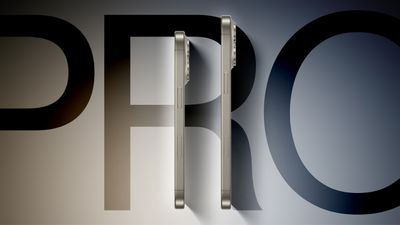As Apple's iPhone 16 launch approaches, questions are swirling about a potential leap in storage capacity for the iPhone 16 Pro models. According to a January report, the iPhone 16 Pro and Pro Max will double their maximum storage to 2TB.

This speculation stems from Apple's rumored adoption of Quad-Level Cell (QLC) NAND flash memory. QLC technology could allow Apple to pack more storage into a smaller space while potentially reducing costs compared to the current Triple-Level Cell (TLC) NAND.
However, it's crucial to approach these rumors with caution. Similar claims about 2TB options surfaced for both the iPhone 14 Pro and iPhone 15 Pro, which ultimately proved false. Yet despite this history, there are new factors that lend credibility to the latest 2TB rumors.
The iPhone 16 Pro models are reportedly set to receive significant camera upgrades that could justify the need for increased storage. Rumors suggest an improved ultra-wide camera with a 48-megapixel sensor, featuring the same pixel-binning technology as the main camera. This upgrade, combined with a wider f/2.2 aperture, promises substantially better low-light performance and support for 48-megapixel ProRaw photography.
Apple is also said to be introducing a new image format called "JPEG-XL." This addition to the existing lineup of HEIF, JPEG, HEIF Max, ProRaw, and ProRAW Max formats could potentially result in larger file sizes, making increased storage more necessary. The rumored capability to shoot 3K video at 120 frames per second with Dolby Vision on the Pro models would also generate significantly larger files.
Last but not least, Apple is reportedly planning to introduce a dedicated "Capture Button" for the iPhone 16 Pro models, emphasizing the device's role as a serious photography and video capture device. Taken together, this collective push towards professional-grade image and video capabilities could justify the need for increased storage options.
While the prospect of a 2TB iPhone is exciting, especially for content creators and power users, it's important to bear in mind that QLC NAND does have drawbacks. Most notably, it typically offers slower read and write speeds compared to TLC NAND.
As we await official announcements from Apple during its upcoming "It's Glowtime" event on September 9, the possibility of a 2TB iPhone 16 Pro model remains an uncertain prospect. Whether this will be the year Apple finally breaks the storage barrier remains to be seen, but the combination of new hardware features and evolving storage technology certainly makes it a possibility. And if it doesn't happen, there's always hope for next year.





















